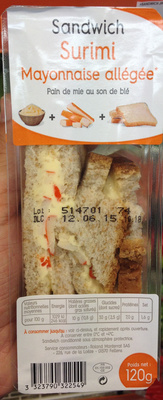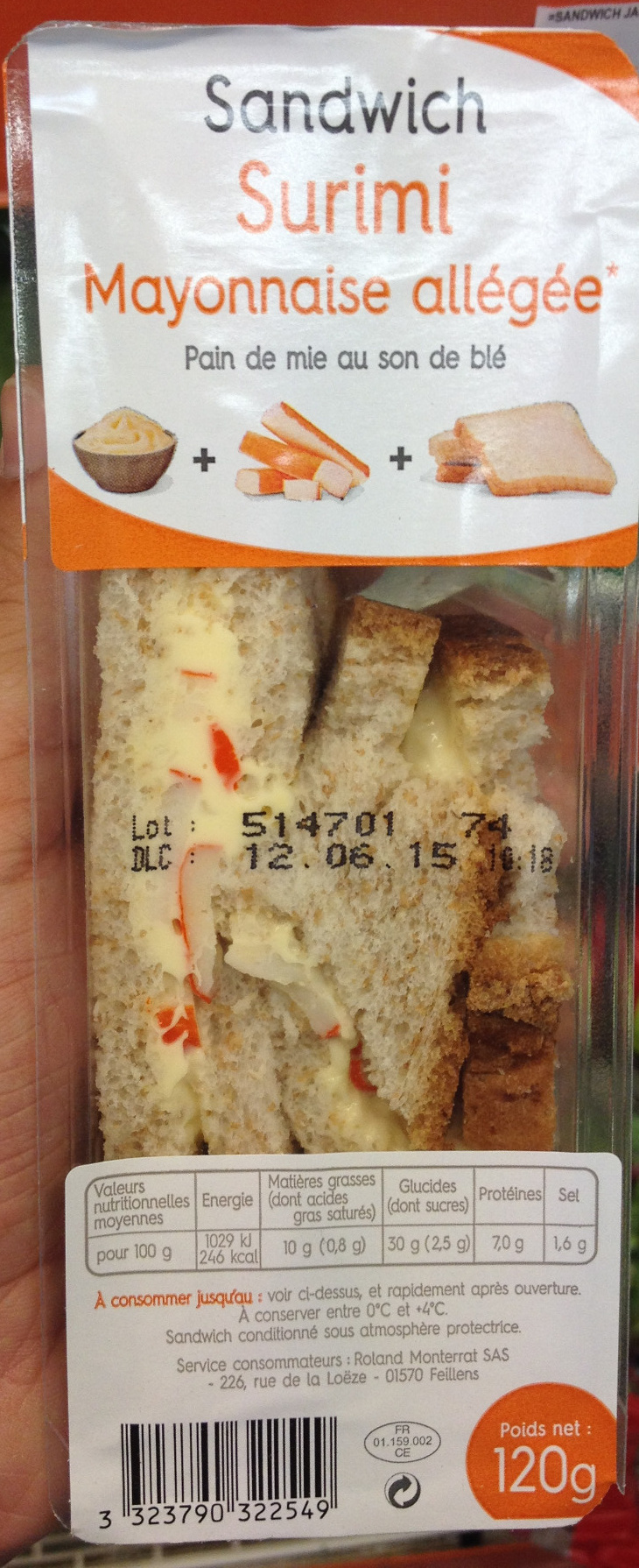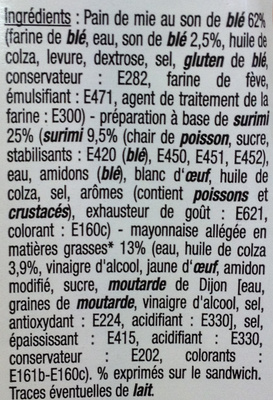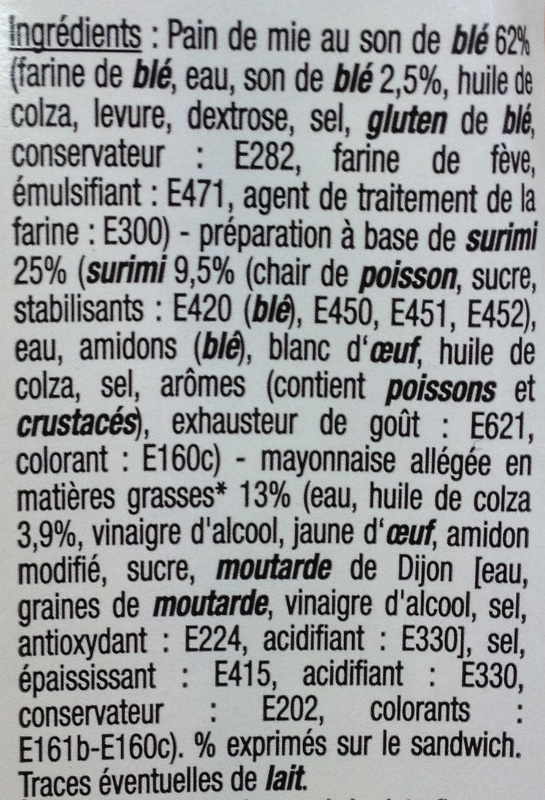Sandwich Surimi Mayonnaise allégée - Roland Monterrat - 120 g
This product page is not complete. You can help to complete it by editing it and adding more data from the photos we have, or by taking more photos using the app for Android or iPhone/iPad. Thank you!
×
Barcode: 3323790322549 (EAN / EAN-13)
Common name: Sandwich au pain de mie au son de blé, à la préparation à base de surimi et à la mayonnaise allégée en matières grasses
Quantity: 120 g
Brands: Roland Monterrat
Categories: Sandwiches, Fish sandwiches, Surimi sandwiches
Traceability code: FR 01.159.002 CE - Feillens (Ain, France)
Stores: Auchan
Countries where sold: France
Matching with your preferences
Environment
Packaging
Transportation
Report a problem
Data sources
Product added on by openfoodfacts-contributors
Last edit of product page on by packbot.
Product page also edited by jeanbono, tacite.
If the data is incomplete or incorrect, you can complete or correct it by editing this page.











